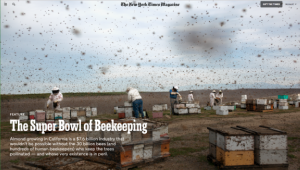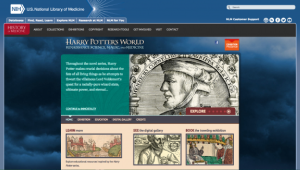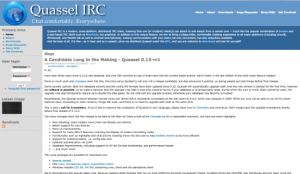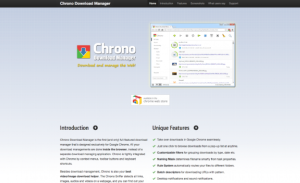Research and Education
Back to Top
|
 |
|
The Caribbean Memory Project
|
Social studies |
|
The Caribbean Memory Project (CMP) is a fascinating digital humanities project focused on collecting and increasing awareness of Caribbean cultural history. Launched in 2014, the CMP is "the Caribbean's first crowd-sourced cultural heritage research platform," created with the intent of combating erasure by archiving and preserving the cultural memories of Caribbean people. Visitors to this public repository will find well-organized archives that can be searched by keyword or browsed by country (subdivided by language) and document type. These archives include media such as oral histories and archival videos, as well as visual materials such as posters, historical and contemporary photographs, maps, and personal documents. There is also a lengthy list of links to educational resources and the CMP has a number of its own ongoing research projects, such as the Place+Memory Heritage Initiative. The Caribbean Memory Project was created by Kevin Browne, Lecturer in English Literature at the University of the West Indies-St. Augustine, and television/film producer Dawn Cumberbatch. The CMP is an active project, and those interested in Caribbean cultures would be well-advised to pay it a visit. [JDC] |
|





|
|
 |
|
LabX: Extreme Event
|
Science |
|
From the National Academy of Sciences comes Extreme Event, an in-person role-playing game that simulates "build[ing] community resilience in the face of disaster." In this hour-long exercise, participants are assigned roles and choose between three different disaster scenarios (earthquake, hurricane, or flood), then work together to help their community survive. Extreme Event is designed to be played by teens and adults in groups of 12-48 participants, making it well-suited for classrooms or adult team-building exercises. All necessary materials, including instructions, handouts, and sound effects, are freely available to download, and the game can be facilitated using either the downloadable script or their web-based "digital game portal" (this option requires the use of seven laptops/tablets). Video tutorials on facilitating the game and creating your own game materials are also available. Extreme Event was developed collaboratively between the Marian Koshland Science Museum (now LabX) and the Resilient America Roundtable (both projects of the National Academy of Sciences), and it "draws on recommendations from the seminal National Research Council report Disaster Resilience: A National Imperative." [JDC] |
|





|
|
 |
|
 |
|
Nature's Notebook
|
Science |
|
Nature's Notebook is a fun and educational citizen science project focused on phenology throughout the United States. Here, nature lovers of all ages can contribute to science by observing the seasonal life-cycles of plants and wildlife. Visitors to Nature's Notebook will find educational resources for all grade levels (including lesson plans, activities, and archived presentations), help for local phenology groups (including how to start one), links to multimedia (including podcasts, videos, and webinars), and most importantly, opportunities and instructions (also available in Spanish) for participating in one of their many nature observation campaigns. After creating a free account, participants can enter data of their observations for as many species as they would like and they will also have access to a dashboard showing visualizations of their entered data. Nature's Notebook provides numerous resources for learning how to do phenological observations and they also have mobile apps available for Android and iOS devices. This long-running program was launched in 2009 by the USA National Phenology Network, "a national-scale science and monitoring initiative" formed in partnership between multiple government agencies, resource managers, and volunteers (among many others)." [JDC] |
|





|
|
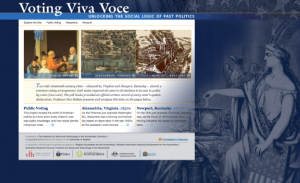 |
|
Voting Viva Voce: Unlocking the Social Logic of Past Politics
|
Social studies |
|
Today, the act of voting is a largely secretive affair in the US, with booths and ballot machines protecting voters' privacy. This was not always the case--voting used to be "conducted in the open before interested spectators," and in some states, votes were cast viva voce, or by voice. This type of voting is key in Voting Viva Voce: Unlocking the Social Logic of Past Politics, a project examining the lives of residents in 1860 Alexandria, Virginia, "a commercial city based on slave labor," and in 1870 Newport, Kentucky, "an industrial city based on immigrant labor." Visitors can search or browse each city's database by social group, business, or individual, with the results displaying on a map of the city showing their residences or business locations. A remarkable range of individual-level data is available, such as demographics, occupation, relationship to slavery, and which candidates individuals voted for in elections. This resource also provides useful contextual information about public voting in Alexandria and Newport. Voting Viva Voce was created by Don DeBats, Professor of American Studies at Flinders University (Australia) and a visiting scholar at the University of Virginia. [JDC] |
|





|
|
 |
|
 |
|
Rainbow History Project
|
Social studies |
|
The Rainbow History Project is a volunteer-run organization dedicated to collecting and preserving "an active knowledge of the history, arts, and culture relevant to sexually diverse communities in metropolitan Washington DC." Here, readers will find online archives containing over 1,400 publicly available items (as of this writing) relating to LGBT history in the DC area. These archives can be browsed in a list, by tag, or by map, and they can also be searched by keyword and a variety of fields. This project also offers several online exhibits, such as "'Gay is Good': Gay and Lesbian Organizing in DC, 1961-1975." The Rainbow History Project's archives have been organized into several dozen thematic collections, including newsletters and fliers, t-shirts and textiles, and oral histories. It should be noted that while the oral histories have a publicly available interview description, few of the sound files are online to protect the privacy of those interviewed. Those interested may contact the organization to request access to specific interviews. [JDC] |
|





|
|
 |
|
Aquatic Invasions
|
Science |
|
The ecosystems of many water bodies around the world are under threat from aquatic invasive species. Scholars interested in this pervasive problem may want to check out the international peer-reviewed journal Aquatic Invasions. Established in 2006, this open-access journal offers readers "academic research of biological invasions in both inland and coastal water ecosystems from around the world." Aquatic Invasions publishes scientific research focusing on topics such as the population dynamics, dispersal patterns, and ecological impacts of non-native species. Recent articles include studies in the Netherlands, the Gulf of Maine, and Croatia. This journal is published by the Regional Euro-Asian Biological Invasions Centre in Finland, and Kit Magellan of the University of Hong Kong is its editor-in-chief, supported by an international editorial board. Aquatic Invasions is one of the official journals for the International Association for Open Knowledge on Invasive Alien Species (INVASIVESNET), and it is indexed by databases such as EBSCO, Thomson Reuters, and DOAJ. [JDC] |
|





|
|












